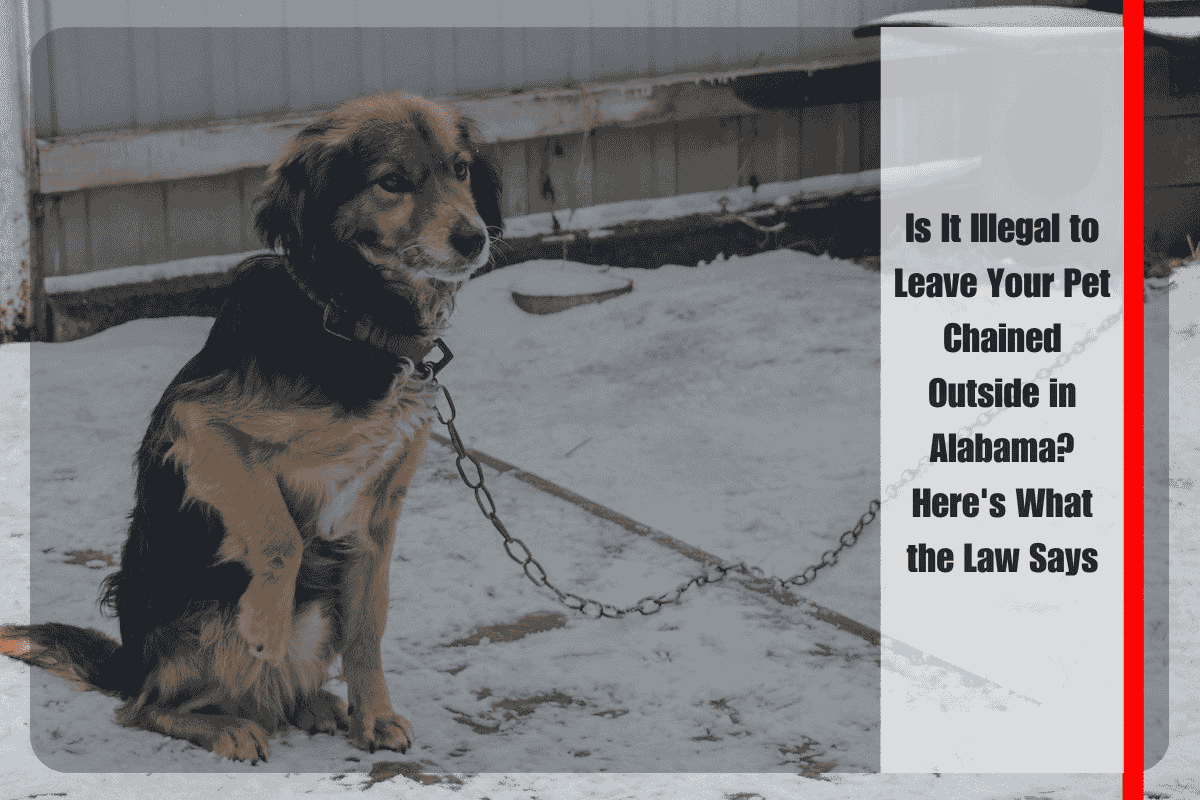In Alabama, the legality of chaining or tethering pets, especially dogs, outside is regulated at the local level rather than by a strict statewide law. Some cities within Alabama, such as Birmingham, Tuscaloosa, Mobile, and Gardendale, have passed ordinances that make it illegal or heavily restrict chaining or tethering dogs in ways that can cause harm or neglect.
For example, Birmingham’s city council passed a law prohibiting chaining dogs or tethering them improperly. The ordinance mandates that dogs must be tethered with a harness or collar that fits comfortably, using a running line rather than a chain, and the tether cannot be attached to a fixed point. Additionally, dogs cannot be tethered for more than eight consecutive hours. The law aims to protect dogs from isolation, physical harm, and psychological distress caused by prolonged confinement with limited mobility and social interaction.
Similarly, Tuscaloosa’s ordinance restricts tethering to no longer than 60 minutes for temporary tasks, requires non-choke collars and a tether length of at least ten feet, and mandates access to food, water, and shelter at all times during tethering.
Gardendale’s regulations prohibit chaining or tying pets such that their movement is restricted to less than 100 square feet and limit tethering to no more than 12 consecutive hours. They also require tethers to allow a full 360-degree range of motion and proper collars or harnesses.
Mobile’s city ordinance makes it unlawful to tether animals to stationary objects for more than 15 minutes unless the owner is physically present and in sight of the animal. It also requires that tethering equipment allow freedom of movement without entanglement, access to water and shelter, and use of properly fitting collars or harnesses.
While these local laws vary in details such as maximum tethering periods and equipment standards, the common goal is to prevent neglect, abuse, and safety risks associated with prolonged or improper chaining of pets. Many of these ordinances classify violations as misdemeanors, subject to fines or other penalties.
Outside of specific city limits, Alabama does not have a uniform statewide law banning or regulating pet chaining. However, animal cruelty laws generally prohibit neglect or abuse, which can apply to excessive or harmful tethering practices.
While chaining a pet outside is not broadly illegal across Alabama, many cities have enacted laws restricting how long and under what conditions pets may be tethered. Responsible pet owners should ensure their pets are not chained for long periods, have proper collars or harnesses, access to food, water, and shelter, and avoid isolation or physical harm. Checking local ordinances in your municipality is important to ensure compliance with the law and the humane treatment of pets.
This layered approach reflects growing awareness of the risks and welfare concerns associated with pet chaining, encouraging safer, kinder practices for animal care in Alabama.
Sources
[1] https://www.apr.org/arts-life/2020-07-25/unchain-that-dog
[2] https://www.peta.org/issues/animal-companion-issues/ordinances/gardendale-alabama/
[3] https://www.peta.org/issues/animal-companion-issues/ordinances/tuscaloosa-alabama/
[4] https://www.cityofmobile.org/uploads/201229052805AnimalTethering1.pdf
[5] https://www.animallaw.info/topic/table-state-dog-tether-laws
[6] https://www.youtube.com/watch?v=t_HjX-bFyp4












